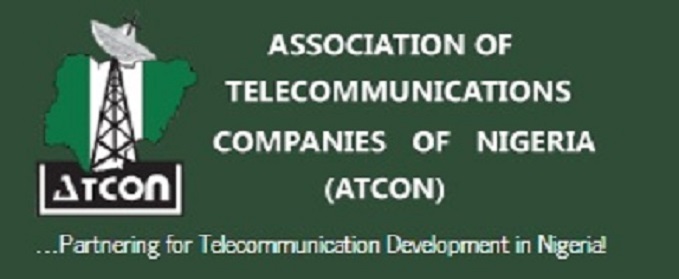Editorial
Need for Sim Registration
It is well-known that mobile phones are revolutionizing communications across the globe, particularly in developing countries like Nigeria.
The palpable excitement notwithstanding; security concerns are beginning to mount over the indiscriminate hawking of Subscriber Identification Module (Sim) packs also known as Sim cards nationwide.
Sim card holds all of a subscriber’s personal information and phone settings. In essence, it is the subscriber’s authorization to use the network. It also holds the phone number, personal security key and other data necessary for the handset to function. The card can be switched from phone to phone, letting the new phone receive all calls to the subscriber’s number.
Hawking of Sim cards is now common place on the streets and roads across the country.
In some countries identification papers identification of card buyers are required and this has helped the countries control crime.
The reason is to aim to curb the prevalent use of cellular communications in committing crimes by enabling law enforcement personnel to track down unscrupulous individuals who have taken advantage of unregistered Sim packs and hide behind untraceable cellular phone numbers.
Accreditation is also needed because security officials can identify the people who make calls or send short message service that may undermine national security.
Association of Telecommunications Companies of Nigeria (Atcon), umbrella body of about 161 telecommunications firms registered and operating in the country has said that there is need to accredit Sim cards in Nigeria.
According to the body, lack of information on Sim card dealers and holders has made it impossible for security agencies to conclude telecom fraud investigations.
Apart from the security implications, Sim card accreditation would also create job opportunities including data warehousing, data mining and storage area networks.
Need for Sim Registration
It is well-known that mobile phones are revolutionizing communications across the globe, particularly in developing countries like Nigeria.
The palpable excitement notwithstanding; security concerns are beginning to mount over the indiscriminate hawking of Subscriber Identification Module (Sim) packs also known as Sim cards nationwide.
Sim card holds all of a subscriber’s personal information and phone settings. In essence, it is the subscriber’s authorization to use the network. It also holds the phone number, personal security key and other data necessary for the handset to function. The card can be switched from phone to phone, letting the new phone receive all calls to the subscriber’s number.
Hawking of Sim cards is now common place on the streets and roads across the country.
In some countries identification papers identification of card buyers are required and this has helped the countries control crime.
The reason is to aim to curb the prevalent use of cellular communications in committing crimes by enabling law enforcement personnel to track down unscrupulous individuals who have taken advantage of unregistered Sim packs and hide behind untraceable cellular phone numbers.
Accreditation is also needed because security officials can identify the people who make calls or send short message service that may undermine national security.
Association of Telecommunications Companies of Nigeria (Atcon), umbrella body of about 161 telecommunications firms registered and operating in the country has said that there is need to accredit Sim cards in Nigeria.
According to the body, lack of information on Sim card dealers and holders has made it impossible for security agencies to conclude telecom fraud investigations.
Apart from the security implications, Sim card accreditation would also create job opportunities including data warehousing, data mining and storage area networks.
Editorial
NDPC Boss Nominated for Global Privacy Assembly’s Giovanni Buttarelli Award 2024

Dr Vincent Olatunji, National Commissioner and Chief Executive Officer of Nigeria Data Protection Commission (NDPC), has been nominated for the Giovanni Buttarelli Award 2024. The award through the Global Privacy Assembly recognises an individual’s outstanding leadership and exceptional efforts in fostering international collaboration.

Dr Vincent Olatunji
This nomination highlights Dr Vincent’s commitment to driving innovation, expanding global partnerships, and promoting a collaborative approach within the data privacy and protection ecosystem.
Under the visionary leadership of Dr Vincent, the Data Privacy ecosystem in Nigeria has witnessed a remarkable growth through key milestones such as deepening the knowledge of data protection and privacy in all public and private institutions, judicial recognition of adequacy principle in cross-border data transfer, playing key roles in regional and global data privacy ecosystem, commencement of bilateral cooperation with other jurisdictions, licensing of data protection compliance organisations, commencement of national data protection certification process, among others.
Dr Vincent’s strategic and innovative initiatives has been instrumental in forging strong international partnerships, driving sustainable growth, fostering a culture of collaboration which has not only propelled the NDPC to new heights but also set a benchmark for international cooperation and industry standards.
The Giovanni Buttarelli Award celebrates leaders who have demonstrated exceptional leadership and/or promoted collaboration at a regional or international level in the field of data privacy and protection.
Nominees are evaluated based on their contributions to projects that has led to the development of innovative concepts or practices, which have significantly impacted the thinking in the international data protection and privacy community, partnerships, and initiatives that enhance global cooperation and development.
In his response to his nomination, Dr Vincent Olatunji expressed his gratitude and emphasised on the importance of collective effort in achieving global progress. “I am deeply honored to be nominated for the Giovanni Buttarelli Award 2024” said Dr Vincent.
“This recognition is a testament to the hard work and dedication of our entire team at NDPC. It underscores the power of collaboration and the remarkable outcomes we can achieve when we work together across borders.
“I am excited to continue our journey, driving innovation and fostering partnerships that make a positive impact globally,” he said.
Editorial
Telcos Ask NCC to Allow Them Hike Tariff

Telecoms operators including MTN, Airtel and Globacom have pushed for cost-reflective tariff in view of extant economic realities.

This was contained in a statement jointly released by the Association of Licensed Telecom Operators of Nigeria (ALTON) and the Association of Telecommunication Companies of Nigeria (ATCON) on Thursday.
The statement was co-signed by Gbenga Adebayo; chairman, ALTON and Tony Emoekpere, president, ATCON.
The telcos called upon the government to take decisive action in addressing the numerous challenges confronting the telecommunications industry.
The telcos said telecommunications infrastructure development requires substantial investments in network expansion, maintenance, and technology upgrades.
“Despite the adverse economic headwinds, the telecommunications industry remains the only industry yet to review its general service pricing framework upward in the last (11) years, primarily due to regulatory constraints.
“For a fully liberalized and deregulated sector, the current price control mechanism, which is not aligned with economic realities, threatens the industry’s sustainability and can erode investors’ confidence.
“ATCON and ALTON call upon the government to facilitate a constructive dialogue with industry stakeholders to address pricing challenges and establish a framework that balances consumers’ affordability with operators’ financial viability,” the statement partly read.
Regarding the Nigerian Communications Commission (NCC), the telcos also said regulatory neutrality and independence are crucial to ensuring a thriving telecommunications sector.
“Statutory provisions lend credence to this notion, as a lack of an impartial regulator will lead to a failure to maintain public confidence in the objectivity and independence of its decisions,” the statement added.
Editorial
FG Reiterates Commitment to Achieving 17 SDGs

The federal government has reiterated its commitment to achieving all the 17 Sustainable Development Goals (SDGs) to promote economic growth and eliminate poverty in Nigeria.

The Minister of Special Duties and Intergovernmental Affairs, Senator George Akume, gave the assurance at a news conference on Tuesday, in Abuja ahead of the “Inaugural Partnership Economy Summit”, scheduled for September 14 and 15.
According to Akume, the primary purpose of the summit is to diversify the economy, promote rural growth, as well as generate sustainable jobs for the youths.
Achieving this, the minister emphasised on partnership with other stakeholders as it was the responsibility of his ministry to achieve the aim of its mission and the creation.
“The framework for the upcoming summit, guided by the principles of Public Social Private Partnership (PSPP) is being designed to develop, promote a multi-Iayered collaborative socio-economic platform for the government, the business sector as well as the civil society.
“In order to achieve this, President Muhammadu Buhari established the ministry with the mandate to develop and implement policies, programmes and projects for the effective and efficient delivery of the gains of Economic Growth and Recovery Plan,” Akume said.
He said the ministry was also charged with the mandate of collaborating with the private sector to create employment for a large number of Nigerian youths, adding that it is also meant to implement a strategy towards the realisation of the president’s June 12 promise to take 100 million Nigerians out of poverty in 10 years.
“Nigeria is among the countries in the UN that signed a pact to implement the SDGs by 2030, in the words of Ban Ki-Moon, former Secretary-General of UN in 2016.
“Nigeria is not left out in its plan towards achieving the SDGs, and how far has Nigeria gone to achieving the 806 goals is part of the questions that the upcoming summit seeks to address,” Akume explained.
He stated that to tackle the issue of poverty and unemployment, the ministry is in partnership with a number of stakeholders, including the Ministry of Industry, Trade and Investment; and Small and Medium Enterprises Development Agency of Nigeria.
Others are Raw Materials Research and Development Council, National Orientation Agency, Association of Local Government of Nigeria and SDGs Nigeria as well as MYK Psymmons Solutions Limited to come up with achievable solutions to all the challenges.

 General News2 days ago
General News2 days agoPrateek Suri CEO Maser Meets Zambia’s Education Minister to Propel Student Housing and Education Projects

 News1 day ago
News1 day agoUN Appoints Sa’id, Nigerian to Nuclear Panel

 E-Financial1 day ago
E-Financial1 day agoUBA’s LEO Becomes Africa’s First Chatbot to Enable Cross-Border Payments

 E-Business1 day ago
E-Business1 day agoNIMC Enrolls 122m for NIN, Cuts Extortion by 40 Percent

 Telecom1 day ago
Telecom1 day agoMTN Urges Nigerian to Regards Telecom Infrastructure as National Assets

 General News1 day ago
General News1 day agoAppeal Court Nullifies Registration of ‘KPMG Professional Services’

 E-Financial1 day ago
E-Financial1 day agoSEC to Introduce USSD Codes to Fight Ponzi Schemes

 E-Financial1 day ago
E-Financial1 day agoPolaris Bank Equips 500+ Journalists with Digital Tools for Modern Storytelling













